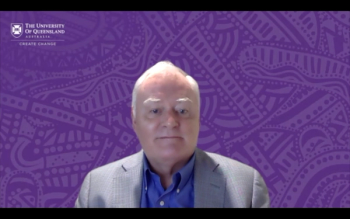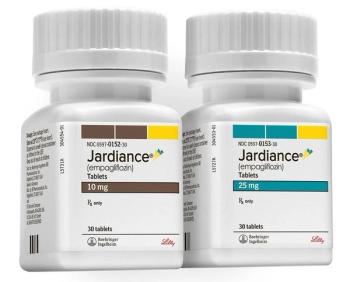
Diabetes
Latest News
Latest Videos

More News

Research Highlights Benefits of Aspirin, Monoclonal Antibody Use in Patients With Diabetes, COVID-19
New research presented at the 5th Heart in Diabetes Conference highlights potential therapeutic options for patients with COVID-19 and diabetes.

The sodium glucose co-transporter 2 (SGLT2) inhibitor reduced cardiovascular death and hospitalization for heart failure by 21% in results presented August 27 during the recent European Society of Cardiology Congress.

David McIntyre, MD, FRACP, describes lessons learned from the pandemic for ensuring appropriate continuation of care for pregnant patients with diabetes.

Native American and Black youth aged 10 to 19 years had the highest incidence of type 2 diabetes overall.

Deepak L. Bhatt, MD, MPH, executive director of interventional cardiovascular programs at Brigham and Women’s Hospital Heart & Vascular Center and professor of medicine at Harvard Medical School, outlines the role that sodium glucose co-transporter (SGLT) inhibitors play in patients with diabetes and diminished glomerular filtration rates.

The United States Preventive Services Task Force (USPSTF) lowered its recommended screening age for type 2 diabetes and prediabetes from 40 to 35 years among overweight and obese individuals.

Adding a sodium-glucose co-transporter 2 (SGLT2) inhibitor dominated switching to a glucagon-like peptide 1 receptor agonist over the lifetimes of patients with type 2 diabetes not at glycated hemoglobin A1c target after treatment with metformin plus a dipeptidyl peptidase-4 inhibitor.

The FDA has approved empagliflozin (Jardiance) for adults with heart failure with reduced ejection fraction, regardless of type 2 diabetes status.

An analysis of gestational diabetes trends in the United States revealed increases across all age and racial subgroups over the past decade.

Catlin Dennis, MPH, explains the importance of securing internet and technology access among vulnerable youth with diabetes.

Bobeck Modjtahedi, MD, elaborates on the importance of devising effective and convenient mechanisms for diabetic retinopathy screening.

The new report compared the benefits of sodium-glucose co-transporter 2 (SGLT2) inhibitors with those of other glucose-lowering drugs and found lower rates of heart disease and mortality.

Regular use of selective serotonin reuptake inhibitors or tricyclic or tetracyclic antidepressants was associated with a reduced risk of all-cause mortality in patients with diabetes.

David McIntyre, MD, FRACP, outlines how metabolic factors could impact the severity of COVID-19 infections among pregnant people.


Deepak L. Bhatt, MD, MPH, executive director of interventional cardiovascular programs at Brigham and Women’s Hospital Heart & Vascular Center and professor of medicine at Harvard Medical School, discusses whether sodium glucose co-transporter 1 (SGLT1) inhibitors can yield stroke benefits in patients with type 2 diabetes.

New research shows that independent of other forms of physical activity, biking is associated with reduced mortality rates among adults with diabetes.

Catlin Dennis, MPH, describes the challenges socially and medically vulnerable youth with diabetes and their families faced during the COVID-19 pandemic.

Michelle Litchman, PHD, FNP-BC, FAANP, FADCES, an assistant professor at the College of Nursing at the University of Utah, describes the results of a study that looked at diabetes technology use and online peer support systems among Spanish-speaking patients. Findings showed that when these 2 interventions are used in conjunction, a positive feedback loop forms.

Patients with prediabetes are at significantly higher risk of major cardiovascular events than those who have never had high blood sugar.

David McIntyre, MD, FRACP, describes different methods of diagnosing gestational diabetes around the world.

A statement from the makers of the SGLT2 inhibitor empagliflozin suggests the benefits in heart failure with preserved ejection fraction (HFpEF) are significant.

The FDA issued a Complete Response Letter, halting Provention Bio's type 1 diabetes prevention drug.

Vaccination rates among Medicaid beneficiaries remain low; Walmart introduces a less expensive insulin option; Moderna says its vaccine is effective against the delta variant.

Deepak L. Bhatt, MD, MPH, executive director of interventional cardiovascular programs at Brigham and Women’s Hospital Heart & Vascular Center and professor of medicine at Harvard Medical School, outlines the benefits of sotagliflozin for individuals with type 2 diabetes and chronic kidney disease or heart failure.
















